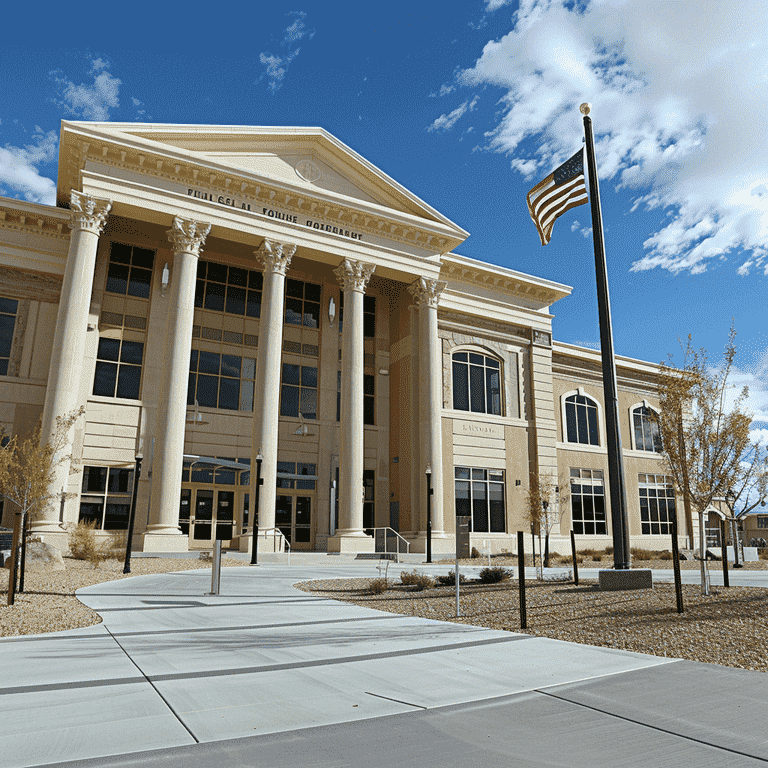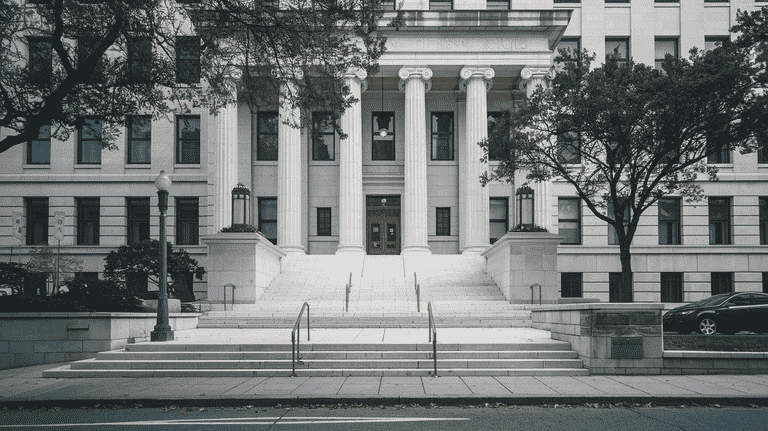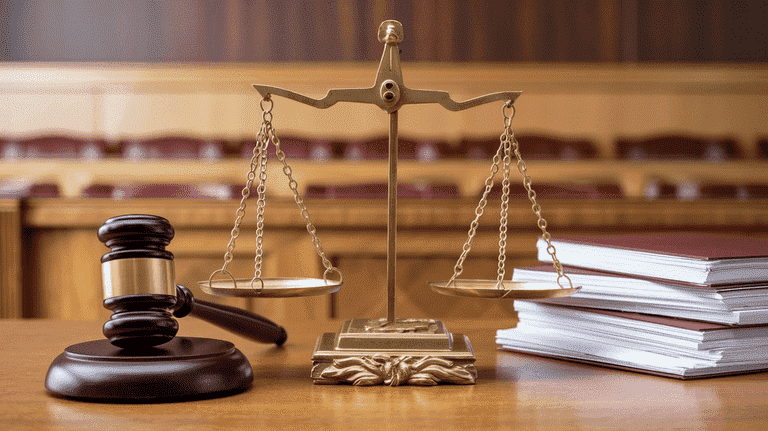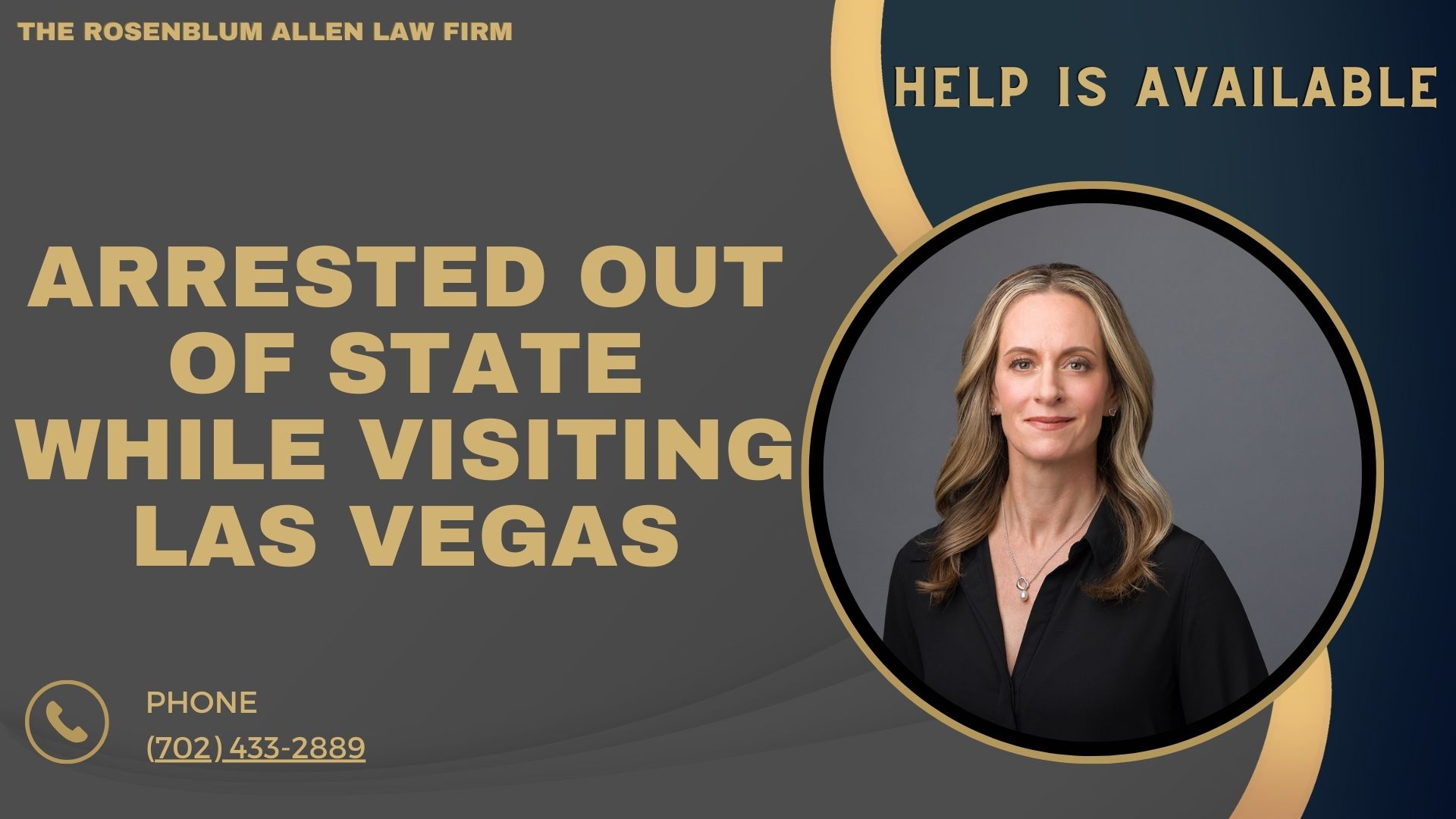Visiting Las Vegas should be all about fun and excitement. What happens when things take an unexpected turn, and you find yourself in legal trouble far from home? Getting arrested out of state can be overwhelming and confusing, especially when unfamiliar with local laws and procedures. This guide will walk you through the steps to take if you’re arrested while visiting Las Vegas, helping you navigate this challenging situation as quickly as possible.
Understanding Your Legal Rights
When you’re arrested, it’s crucial to know your legal rights. This knowledge can make a significant difference in how your case unfolds.
Miranda Rights
Upon arrest, you should be read your Miranda Rights. These rights are designed to protect you:
- You have the right to remain silent. Anything you say can be used against you in court.
- You have the right to an attorney. If you cannot afford one, a public defender will be provided.
If these rights aren’t read to you, it might affect the admissibility of your statements in court. Always remember, saying less is better and asking for a lawyer immediately.
The Right to Remain Silent
You are not obligated to answer questions from law enforcement without your attorney present. And politely say, “I am invoking my right to remain silent and want to speak with an attorney.” This helps prevent unintentional self-incrimination.
The Right to an Attorney
Having an attorney is vital whether you are familiar with the law or not. They will advise you on what to say and how to act, and they will handle communications with law enforcement on your behalf.
Immediate Steps to Take After Arrest
Once arrested, it’s easy to panic. Here are the steps to help keep your situation under control:
Stay Calm and Cooperate
- Keep calm, and don’t resist. Even if you believe it’s unjust, resisting arrest can result in additional charges.
- Follow law enforcement’s instructions, but do not engage in unnecessary conversation.
Do Not Discuss Your Case with Anyone Other Than Your Attorney
- Avoid talking about your case with friends, cellmates, or anyone else. Conversations could be overheard and used against you.
- Even seemingly innocent comments can be misinterpreted, so waiting until you have legal representation is best.
Request Legal Representation Immediately
- As soon as you’re able, request an attorney. You will be assigned a public defender if you don’t have one.
- A lawyer familiar with Nevada’s legal system can offer guidance tailored to your situation and advise you on the next steps.

Contacting a Local Attorney in Las Vegas
Finding the proper legal representation is critical when arrested out of state. Here’s how to go about it:
Why It’s Important to Hire a Local Attorney
- Local attorneys are familiar with Nevada’s laws, court procedures, and key players in the legal system, such as judges and prosecutors.
- They can navigate the legal landscape more effectively than out-of-state lawyers.
How to Find a Reputable Las Vegas Criminal Defense Lawyer
- Research Online: Look for attorneys with solid reviews and testimonials.
- Seek Referrals: Ask friends or family if they know reputable lawyers in Las Vegas.
- Contact Local Bar Associations: They can provide lists of qualified criminal defense attorneys in the area.
Initial Consultation: What to Expect
During the initial consultation, the attorney will:
- Review the details of your arrest and charges.
- Advise on possible defenses and outcomes.
- Discuss legal fees and potential costs.
This consultation is typically free and an excellent opportunity to determine if the attorney fits your case.
Dealing with Bail and Bond
One of the first hurdles you’ll face after an arrest is securing your release from jail. This typically involves bail or bond, but it can be more complicated when you’re out of state.
How Bail Works in Nevada
Bail is the money the court sets to ensure you return for your court dates. In Nevada, depending on the charges, bail can be set at your arraignment or based on a bail schedule.
- Cash Bail: You pay the total amount to the court. Once your case is resolved, the money is returned minus any court fees or fines.
- Bail Bond: If you can’t afford the cash bail, you can work with a bail bond agent. You’ll pay a non-refundable fee (usually about 10-15% of the bail amount), and they’ll cover the rest. They are responsible for the total amount if you don’t attend court.
Options for Posting Bail
- Self-Pay: If the funds are available, you or a family member can pay the cash bail directly.
- Bail Bondsman: They are a good option if cash isn’t readily available. Just remember, their fee is non-refundable.
- Property Bond: In some cases, you might use property as collateral for bail.
How Out-of-State Residency Can Impact Bail Decisions
Being from out of state can affect your bail:
- Higher Bail Amounts: Judges might set higher bail due to the perceived flight risk.
- Additional Conditions: You might face travel restrictions or more frequent check-ins with a pretrial officer.
Considering your out-of-state residency, having a local attorney who can argue for reasonable bail terms is crucial.


Attending Court Hearings
Once out on bail, attending your court hearings is non-negotiable. Missing a hearing can lead to severe consequences, including an arrest warrant.
The Process of Setting a Court Date
- After your arrest, the court will schedule your initial hearing. This is often called an arraignment.
- Your attorney will receive all hearing dates and keep you informed.
What to Expect in a Nevada Court
Nevada courts are strict, and it’s essential to be prepared:
- Dress Appropriately: Courtrooms expect respectful attire. Think business casual or better.
- Be On Time: Arriving late can reflect poorly on your case and may result in a warrant.
- Speak Respectfully: Always address the judge as “Your Honor” and listen carefully before responding.
Options for Appearing in Court: In-Person vs. Virtual Appearances
In some cases, you might not have to appear in person for every hearing:
- In-Person: Required for most critical hearings, significantly if your presence impacts legal decisions.
- Virtual Appearances: Some non-critical hearings may allow virtual attendance, saving travel time and expense. Check with your attorney if this option is available.
Your attorney will guide you on which appearances are mandatory and which might offer some flexibility.
Travel Restrictions and Legal Obligations
Being released on bail doesn’t mean you can do whatever you want. You’ll have obligations and restrictions.
Conditions of Release: Travel Restrictions, Check-Ins, and More
Courts often impose conditions as part of your release on bail:
- Travel Restrictions: You may be restricted from leaving Nevada or be required to notify the court of any travel plans.
- Regular Check-Ins: You should check in regularly with a pretrial officer, whether weekly or more frequently.
- Avoid Certain Activities: Depending on your charges, you might be restricted from consuming alcohol, visiting specific places, or contacting certain individuals.
Failure to comply with these conditions can lead to your bail being revoked.
Consequences of Missing a Court Date
Missing a court date is a serious offense. It can lead to:
- Bench Warrant: A warrant for your arrest will be issued immediately.
- Bail Forfeiture: Any bail posted may be forfeited, and you won’t get that money back.
- Additional Charges: Skipping court can result in additional charges, complicating your legal situation.
Options if Unable to Return to Las Vegas for a Hearing
Life happens, and sometimes, getting back to Las Vegas might not be possible:
- Attorney Representation: In some cases, your attorney may appear on your behalf. Always confirm with your lawyer beforehand.
- Request to Reschedule: If you have a valid reason, your attorney can request a new court date. This needs to be done well in advance of your scheduled hearing.
Staying proactive and communicating with your attorney about potential court appearances issues is critical.

Handling Charges and Possible Outcomes
Facing criminal charges in an unfamiliar state can be daunting. Understanding what you’re up against and knowing your potential outcomes can help reduce some of the stress.
Standard Charges for Out-of-State Visitors in Las Vegas
Las Vegas is known for its lively atmosphere, which can sometimes lead to trouble. Here are some standard charges tourists face:
- DUI: Driving under the influence is a frequent charge, given the city’s nightlife.
- Drug Possession: Even small amounts of illegal substances can result in severe penalties.
- Assault or Disorderly Conduct: Altercations, even minor ones, can quickly escalate to criminal charges.
Each charge has its legal standards, and understanding what you’re facing is critical.
Possible Legal Defenses
Your attorney will work with you to build a defense tailored to your case. Common defenses include:
- Lack of Evidence: Arguing that the prosecution lacks evidence to prove guilt beyond a reasonable doubt.
- Procedural Errors: Challenging the arrest process, such as improper Miranda warnings or illegal searches.
- Mistaken Identity: Arguing that you were wrongly identified or not present during the crime.
Potential Outcomes: Dismissal, Plea Deals, Trial
The outcome of your case can vary based on many factors:
- Dismissal: Charges are dropped due to lack of evidence or procedural errors.
- Plea Deal: You may agree to plead guilty to a lesser charge in exchange for a lighter sentence. This can save time and reduce penalties.
- Trial: If your case goes to trial, the outcome will depend on the evidence, witnesses, and arguments presented. A judge or jury will decide a verdict of guilty or not guilty.
Your attorney will guide you on the best approach, whether negotiating a plea deal or fighting the charges in court.
Working with Your Home State Attorney
Being arrested in another state doesn’t mean you should navigate the situation alone. Coordination between your Las Vegas attorney and a lawyer from your home state can be beneficial.
Coordinating with an Attorney in Your Home State
Here’s why involving your home state attorney might help:
- Familiarity with Your Background: They understand your history and can provide context that a Nevada attorney might not have.
- Support and Communication: They can help communicate with Nevada legal professionals, making the process smoother.
- Navigating Cross-State Legalities: They can assist with understanding how a Nevada arrest impacts your home state obligations, like probation or parole.
Differences in Legal Processes Between Nevada and Your Home State
Every state has its legal quirks:
- Court Procedures: Nevada may handle arraignments, bail, and trials differently than your home state.
- Penalties: The consequences for the same crime can vary. For example, Nevada might have stricter penalties for DUI than your home state.
- Legal Terminology: Legal terms and their implications can differ, making it crucial to have local expertise.
Extradition Laws and Interstate Legal Agreements
If your charges are severe, or if you miss court appearances, extradition could become an issue:
- Extradition is the legal process of returning you to Nevada if you flee the state. It can happen if you have pending charges or fail to appear in court.
- Interstate Agreements: States work together under certain agreements to handle criminal cases. Your home state may cooperate with Nevada to ensure you face your charges.
Your attorneys will work together to navigate these complex legalities, aiming to reduce the impact on your life.

Navigating the Impacts on Your Record and Future
An arrest can have lasting effects, but understanding these impacts can help you take steps to mitigate them.
How an Arrest in Nevada Affects Your Criminal Record
A criminal record doesn’t stop at state lines:
- Permanent Record: Convictions in Nevada will show up on background checks nationwide.
- Employment Issues: Some employers may hesitate to hire individuals with criminal records, especially for jobs requiring a clean history.
- Travel Restrictions: Certain charges can impact your ability to travel internationally or get specific visas.
Impact on Employment, Travel, and Other Areas of Your Life
Beyond the legal system, a criminal charge can touch other parts of your life:
- Employment: You might lose your current job or need help finding new work. Some professions, like teaching or healthcare, have strict regulations regarding criminal records.
- Licenses and Permits: Professional licenses could be at risk, especially in law, medicine, or finance.
- Travel: Some countries restrict entry to those with criminal records, impacting personal and business travel plans.
Steps to Minimize Long-Term Effects
There are ways to reduce the impact of an arrest:
- Seek Expungement: Depending on the charge and outcome, you might be eligible to have the record sealed or expunged.
- Complete Rehabilitation Programs: Participating in court-ordered programs can sometimes reduce penalties and improve your standing.
- Legal Advice: Consult your attorney about how best to clear your record or reduce its impact over time.
Seeking Legal Help for Non-Criminal Charges
Not all arrests lead to criminal charges, but you’ll still need to address any legal issues promptly.
What to Do If Arrested for Non-Criminal Offenses (e.g., Traffic Violations)
Non-criminal offenses, like traffic violations, can still complicate your life:
- Pay Fines Promptly: Ignoring fines can escalate to warrants or higher penalties.
- Attend Traffic School: In some cases, completing a course can reduce fines or points on your license.
- Legal Representation: Even for minor offenses, having a lawyer can help you navigate fines, court appearances, and penalties.
Hiring an Attorney to Handle Minor Offenses Remotely
For minor infractions, you might not need to return to Nevada:
- Attorney Representation: Your lawyer can often handle court appearances and negotiations on your behalf.
- Plea by Mail: Some minor charges allow you to resolve the case through mail or online without appearing in court.

Breaking It All Down
Facing an arrest while visiting Las Vegas can be a daunting experience, especially when you’re far from home and unfamiliar with local laws. However, understanding your rights and taking the proper steps can significantly impact your situation. Always remember the importance of staying calm, requesting legal representation immediately, and following the guidance of a local attorney who understands Nevada’s legal landscape.
Navigating the legal system in another state comes with challenges, but you’re not alone. Your attorney will be your best ally in fighting charges, negotiating bail, and managing court appearances, even from afar. By staying proactive, keeping communication open, and adhering to legal obligations, you can work towards minimizing the impact of an arrest on your life and future.
It’s not just about handling the immediate fallout; it’s about making informed decisions that protect your rights and set you on the best path forward. Whether dealing with serious criminal charges or minor offenses, taking action quickly and seeking the proper support will help you get through this unexpected turn of events with as much peace of mind as possible.
Remember, legal troubles are temporary, and with the right approach, you can overcome them and move on to better days. Stay informed, stay prepared, and always have a trusted legal professional on your side.

Frequently Asked Questions
Can I handle my case remotely without returning to Las Vegas?
Sometimes, your attorney can appear on your behalf or negotiate plea deals remotely, especially for minor offenses. However, for more severe charges, personal appearances may be required. Always check with your attorney about your specific obligations.
What happens if I miss a court date?
Missing a court date can result in a bench warrant for your arrest, forfeiture of bail, and potentially additional charges. If you know you won’t be able to attend, inform your attorney as soon as possible. They may request a new date on your behalf.
Will my arrest in Las Vegas affect my record in my home state?
Yes, an arrest in Nevada will be part of your national criminal record, which can impact background checks in your home state. Depending on the severity of the charges, it can also affect your professional licenses, employment opportunities, and ability to travel internationally.
Can I get my charges reduced or dismissed?
It depends on the specifics of your case. Your attorney may negotiate with prosecutors to reduce charges or seek dismissal if there are weaknesses in the case, such as lack of evidence or procedural errors. A good legal defense is crucial to achieving the best possible outcome.
What should I do if I can't afford a private attorney?
You can request a public defender if you cannot afford a private attorney. Public defenders are court-appointed attorneys representing individuals unable to pay for private legal counsel. They are knowledgeable and can still provide valuable legal assistance, though they may have larger caseloads.
Can I leave Nevada after being released on bail?
Leaving Nevada after posting bail depends on the conditions set by the court. Some conditions may include travel restrictions or regular check-ins. It’s crucial to adhere to these conditions to avoid complications or bail revocation. Discuss any travel plans with your attorney to ensure compliance with court orders.
How can I clear my record after the case is resolved?
Depending on the outcome, you may be eligible for expungement or record sealing, which can help minimize the long-term effects of your arrest. Your attorney can guide you through the process and help determine if you qualify based on Nevada law.
What should I do if I'm arrested but not charged immediately?
You should still contact an attorney if you’re arrested and not charged immediately. The attorney can communicate with law enforcement and the prosecutor’s office to understand your situation and work to prevent charges from being filed or negotiate a favorable outcome.
How can I find the best attorney for my case?
To find the best attorney for your case, look for a lawyer specializing in criminal defense who has experience with out-of-state clients. Research online reviews, seek referrals, and consult multiple attorneys before deciding. Choose someone who makes you feel comfortable and confident in their ability to handle your case.
What if I feel my rights were violated during the arrest?
Inform your attorney immediately if you believe your rights were violated during the arrest. They can investigate potential misconduct, such as unlawful search and seizure or failure to read your Miranda rights. These violations could play a crucial role in your defense strategy.

Additional Resources for You from The Rosenblum Allen Law Firm.
In addition to helping with appeals, our lead attorney, Molly Rosenblum Allen, Esq., has created various resources to support you in other legal matters:
- Criminal Defense Attorneys: Comprehensive defense strategies for criminal charges.
- Las Vegas DUI Lawyer: Effective representation for DUI charges in Las Vegas.
- Domestic Violence Lawyer Las Vegas: Protection and defense in domestic violence cases.
- Drug Possession Lawyer: Legal assistance for drug possession charges.
- Sex Crimes Attorney: Defense for those accused of sex crimes.
- CPS Defense Attorney: Help with Child Protective Services (CPS) cases.
- Misdemeanor Lawyer: Defense against misdemeanor charges.
- Las Vegas Warrant Defense Attorney: Assistance with active warrants in Las Vegas.
- Las Vegas Probation Violation Attorney: Defense for probation violations.
- Theft Crime Defense Lawyer: Representation for theft-related charges.
- Kidnapping Lawyers: Legal defense for kidnapping accusations.
- Juvenile Defense Lawyers: Protecting the rights of juveniles in court.
- Firearms Lawyer Las Vegas: Legal guidance for firearm-related charges.
These resources are designed to provide you with the knowledge and support needed to navigate these challenging legal issues.

Offsite Resources for You
American Bar Association (ABA): https://www.americanbar.org/
The ABA provides extensive resources and information on the legal process, including articles and guides on appeals and other legal topics.
National Association of Criminal Defense Lawyers (NACDL): https://www.nacdl.org/
NACDL offers resources and advocacy for criminal defense attorneys and individuals facing criminal charges, including insights on appeals.
Nevada Judiciary: https://nvcourts.gov/
The official website of the Nevada Judiciary provides direct access to court information, forms, and procedures for appeals and other legal processes.
FindLaw: https://www.findlaw.com/
FindLaw offers a comprehensive collection of legal articles, case law, and guides on various legal topics, including the appeals process.
Justia: https://www.justia.com/
Justia provides free access to a wide range of legal information, including resources related to appeals and Nevada-specific legal issues.
Martindale-Hubbell: https://www.martindale.com/
Martindale-Hubbell offers lawyer directories and legal articles, helping individuals connect with qualified attorneys and learn more about the appeals process.
National Center for State Courts (NCSC): https://www.ncsc.org/
NCSC provides information on court systems, including appeals processes, court administration, and resources for those involved in legal proceedings.

A Special Message from Our Lead Attorney, Molly Rosenblum Allen, Esq

Thank you for taking the time to read through our resources. Navigating legal challenges, especially when you’re far from home, can be overwhelming, but you don’t have to go through it alone. If you need help with your situation or have any questions, please don’t hesitate to reach out. Give me and my team a call at (702) 433-2889, and let’s get the ball rolling. We’re here to support you every step of the way.
Looking forward to speaking with you soon!






